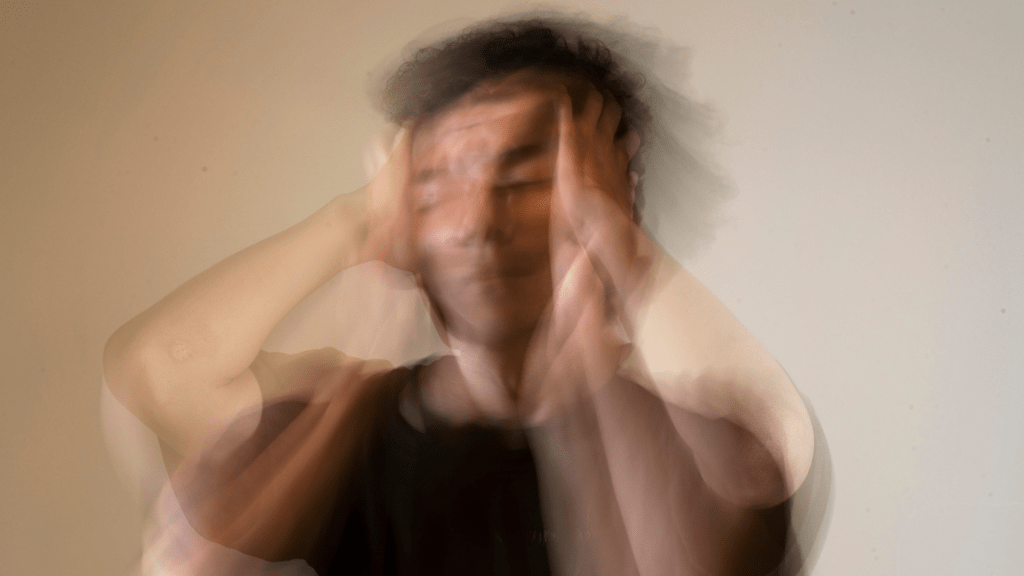Feeling the pressure before a big moment is a common experience, but for some, it can lead to overwhelming performance anxiety. In my years of navigating high-stress situations, I’ve learned valuable strategies for staying calm when it matters most. In this article, I’ll share practical tips to help you overcome performance anxiety and perform at your best under pressure.
Whether you’re gearing up for a crucial presentation, an important sports match, or a nerve-wracking audition, managing anxiety is key to achieving success. By implementing simple yet effective techniques, you can harness your nerves and channel them into a powerful performance. Join me as we explore actionable advice to conquer performance anxiety and unlock your full potential in high-pressure situations.
Understanding Performance Anxiety
Performance anxiety is a common phenomenon that many individuals experience in high-pressure situations. It can manifest as feelings of apprehension, nervousness, or fear before important events such as presentations, sports competitions, or performances. Understanding the causes and effects of performance anxiety is key to effectively managing and overcoming it.
Definition and Causes
Performance anxiety, also known as stage fright or exam nerves, is a form of social phobia characterized by excessive worry about being evaluated by others. It stems from the fear of making mistakes, being judged, or not meeting expectations in a performance or competitive setting. The pressure to perform well can trigger psychological and physiological responses, leading to symptoms like trembling, sweating, rapid heartbeat, and mental distractions.
Impact on Professional and Personal Life
The impact of performance anxiety can be profound, affecting both professional and personal contexts. In professional settings, performance anxiety can hinder career growth, limit opportunities for advancement, and undermine confidence in one’s abilities. It may also lead to decreased productivity, avoidance of challenging tasks, and strained relationships with colleagues.
In personal life, performance anxiety can erode self-esteem, create self-doubt, and generate feelings of inadequacy. It may impede social interactions, cause avoidance of social gatherings or activities, and contribute to a sense of isolation or loneliness. Recognizing the impact of performance anxiety on various aspects of life is crucial for taking proactive steps to address and mitigate its effects.
Strategies for Overcoming Performance Anxiety
I’ve found that preparation and practice are crucial in managing performance anxiety. Ensuring that I am well-prepared for the task at hand helps alleviate some of the pressure I may feel. By practicing beforehand, I build confidence in my abilities, making it easier to stay calm under pressure.
When facing performance anxiety, incorporating mindfulness and relaxation techniques into my routine has been incredibly beneficial. Taking a few moments to practice deep breathing or visualization exercises helps me center myself and quieten the negative thoughts that can exacerbate anxiety. These techniques have been instrumental in helping me maintain a sense of calmness during stressful situations.
Preparation and Practice
In my experience, dedicating time to prepare thoroughly for an upcoming event or challenge can significantly reduce performance anxiety. Breaking down the task into smaller, manageable steps and practicing each step can boost my confidence and readiness. Additionally, rehearsing in a setting similar to the actual performance environment can familiarize me with the surroundings, making me feel more at ease when the time comes.
Mindfulness and Relaxation Techniques
Incorporating mindfulness practices such as meditation or progressive muscle relaxation into my daily routine has been a game-changer in managing performance anxiety. By training my mind to focus on the present moment and consciously relaxing my body, I can lower stress levels and improve my ability to handle pressure. Engaging in these techniques regularly has helped me cultivate a sense of inner peace and resilience in challenging situations.
Role of Support Systems

Support systems play a crucial role in helping individuals overcome performance anxiety and stay calm under pressure. Seeking assistance from professionals and building a supportive community can significantly impact one’s ability to manage stress and boost confidence in high-stakes situations.
Seeking Professional Help
I recommend consulting with a therapist, counselor, or a performance coach if performance anxiety significantly impacts your daily life or professional endeavors. These professionals can provide personalized strategies, coping mechanisms, and tools tailored to your specific needs. By working with a professional, you can address underlying issues, develop resilience, and improve your overall performance under pressure.
Building a Supportive Community
Surrounding yourself with a supportive community of friends, family, mentors, or like-minded individuals can create a positive environment that fosters growth and confidence. Engaging in open conversations about your challenges and seeking encouragement from those who understand and uplift you can enhance your emotional well-being and self-assurance. Building a strong support network can offer valuable feedback, different perspectives, and a sense of belonging during stressful times, ultimately aiding in overcoming performance anxiety.
Maintaining Your Progress
When considering long-term strategies for managing anxiety, consistency in implementing coping mechanisms is crucial. Regular practice of relaxation techniques, mindfulness exercises, and seeking support from professionals can help in building resilience over time. By incorporating these strategies into your daily routine, you can gradually reduce performance anxiety and enhance your ability to stay calm under pressure.
Long-Term Strategies for Managing Anxiety
In the long term, it’s essential to establish a routine that includes consistent practice of relaxation techniques such as deep breathing, progressive muscle relaxation, and meditation. Engaging in mindfulness exercises regularly can also help in staying present and focused during high-pressure situations. Additionally, seeking support from therapists or performance coaches for ongoing guidance and personalized strategies is key to managing anxiety effectively over time. By incorporating these practices into your long-term routine, you can cultivate a sense of calmness and confidence in your abilities.
When to Reevaluate Your Approach
It’s important to periodically assess your progress and reevaluate your approach to managing performance anxiety. If you notice persistent feelings of anxiety or find that your current strategies are not as effective as before, it may be time to reassess and make necessary adjustments. Factors such as changes in your environment, increased stress levels, or new triggers can impact how you respond to anxiety. By being mindful of these changes and willing to adapt your approach, you can continue to progress in overcoming performance anxiety and maintaining a sense of calmness under pressure.

 Danielo Fleischeronic is the visionary founder of Awesome Football Network, a premier destination for in-depth football coverage and analysis. His commitment to the sport is reflected in the platform's rich content, which includes breaking news, match analyses, and expert commentary. Danielo’s extensive knowledge and passion for football drive the network’s mission to provide fans with the latest insights and updates from around the world.
In addition to his role as founder, Danielo is also an accomplished article writer. His writing covers a broad spectrum of football-related topics, from tactical breakdowns to player profiles, offering readers a comprehensive understanding of the game. Through his work, Danielo aims to enrich the football experience for enthusiasts and professionals, making Awesome Football Network a trusted resource in the football community.
Danielo Fleischeronic is the visionary founder of Awesome Football Network, a premier destination for in-depth football coverage and analysis. His commitment to the sport is reflected in the platform's rich content, which includes breaking news, match analyses, and expert commentary. Danielo’s extensive knowledge and passion for football drive the network’s mission to provide fans with the latest insights and updates from around the world.
In addition to his role as founder, Danielo is also an accomplished article writer. His writing covers a broad spectrum of football-related topics, from tactical breakdowns to player profiles, offering readers a comprehensive understanding of the game. Through his work, Danielo aims to enrich the football experience for enthusiasts and professionals, making Awesome Football Network a trusted resource in the football community.
